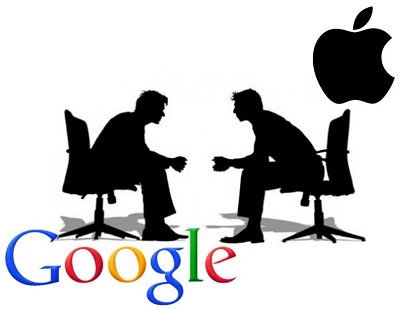Angela Ahrendts helps shape the future of Apple
Technology giant Apple reached the end of the roadmap that Steve Jobs had created to direct the company’s future last year. This roadmap has served as a guideline for several years and has helped the company remain focused on its primary interests, establishing a strong and reliable position in its industry. With the roadmap having reached its end, Apple has been left with limited guidance and has had to find new ways to remain an influential force in its industry. Unfortunately, this involved making some mistakes, but some of these mistakes may be rectified thanks to Angela Ahrendts.
New retail chief has big plans for Apple
Ahrendts was officially hired onto Apple only three weeks ago and now serves as the company’s retail chief. She has a long history of success in serving as CEO for Burberry since 2006. During her time with that company, she was able to increase sales and mitigate losses by a significant margin. As Apple’s new retail chief, Ahrendts is aiming to take the company into a new direction by reshaping its focus on mobile payments and bolstering its presence in foreign markets.
Apple to focus more heavily on mobile payments and the market in China
 Under Ahrendt’s direction, Apple is set to become much more prolific in China, from a retail standpoint. The company intends to open new Apple Stores throughout the country in an effort to embrace the growing number of consumers that are adopting iOS devices there. Ahrendt also plans to improve the end-to-end sales experience in all Apple Stores, promoting product discovery, improving customer interactions with employees, and putting a heavier emphasis on mobile payments in general.
Under Ahrendt’s direction, Apple is set to become much more prolific in China, from a retail standpoint. The company intends to open new Apple Stores throughout the country in an effort to embrace the growing number of consumers that are adopting iOS devices there. Ahrendt also plans to improve the end-to-end sales experience in all Apple Stores, promoting product discovery, improving customer interactions with employees, and putting a heavier emphasis on mobile payments in general.
Major changes to Apple’s retail structure have already been made
Apple has had some setbacks over the past year that have placed it in a precarious position when it comes to the mobile space. Ahrendt is expected to help the company overcome the problems of its past and enter into a new era of success. She has already made serious changes to the company’s retail ecosystem that have been well received by her fellow executives and the company’s employees.
These two technology giants have agreed to stop suing each other and to work together for systemic reforms.
Google and Apple have now come to an agreement that will enter them into a ceasefire within their mobile patents war, in which neither of them will sue the other and in which they will both work together in the effort to encourage patent system reforms in the United States.
The current truce is one of the outcomes of a massive trial that started back in 2010 between the two.
In that year, the trial in which Apple had sued Motorola Mobility was started. The latter company is the hardware manufacturer that was purchased by Google in order to divide it up and sell off its parts, maintaining a boatload of technology and mobile patents. As a result of the way that the lawsuit played out, a joint statement from the two companies now reads that “Apple and Google have agreed to dismiss all the current lawsuits that exist directly between the two companies.” It added that “Apple and Google have also agreed to work together in some areas of patent reform. The agreement does not include a cross license.”
It appears that some of the mobile patents lawsuits from Apple will continue, though not directly against Google.
 The wording of the statement that was made by the companies indicates that the lawsuits that are underway from Apple against mobile device manufacturers that are using the Android operating system, from Google, would not cease. This includes the patent suit opened by Apple against Samsung that has brought about two massive headline making trials in San Jose, California, as well as comparable legal battles occurring in other nations.
The wording of the statement that was made by the companies indicates that the lawsuits that are underway from Apple against mobile device manufacturers that are using the Android operating system, from Google, would not cease. This includes the patent suit opened by Apple against Samsung that has brought about two massive headline making trials in San Jose, California, as well as comparable legal battles occurring in other nations.
In both of the high profile trials against Samsung, Apple has come out the winner. However, the second judgment’s damages were notably lower. It was in that second case that newer Samsung mobile devices were included.
The lawsuits against many of the companies using Android were carrying out a vow by Steve Jobs, the late CEO of Apple, in which he said that the company would go “thermonuclear” against Google for having copied the iOS for the iPhone in what he referred to as “grand theft.”. That statement was revealed in the Walter Isaacson biography of Jobs which was published after the Apple co-founder’s death.
 Under Ahrendt’s direction, Apple is set to become much more prolific in China, from a retail standpoint. The company intends to open new Apple Stores throughout the country in an effort to embrace the growing number of consumers that are adopting iOS devices there. Ahrendt also plans to improve the end-to-end sales experience in all Apple Stores, promoting product discovery, improving customer interactions with employees, and putting a heavier emphasis on mobile payments in general.
Under Ahrendt’s direction, Apple is set to become much more prolific in China, from a retail standpoint. The company intends to open new Apple Stores throughout the country in an effort to embrace the growing number of consumers that are adopting iOS devices there. Ahrendt also plans to improve the end-to-end sales experience in all Apple Stores, promoting product discovery, improving customer interactions with employees, and putting a heavier emphasis on mobile payments in general.
 The wording of the statement that was made by the companies indicates that the lawsuits that are underway from Apple against mobile device manufacturers that are using the Android operating system, from Google, would not cease. This includes the patent suit opened by Apple against Samsung that has brought about two massive headline making trials in San Jose, California, as well as comparable legal battles occurring in other nations.
The wording of the statement that was made by the companies indicates that the lawsuits that are underway from Apple against mobile device manufacturers that are using the Android operating system, from Google, would not cease. This includes the patent suit opened by Apple against Samsung that has brought about two massive headline making trials in San Jose, California, as well as comparable legal battles occurring in other nations.